Importance staying hydrated – Best way stay hydrated
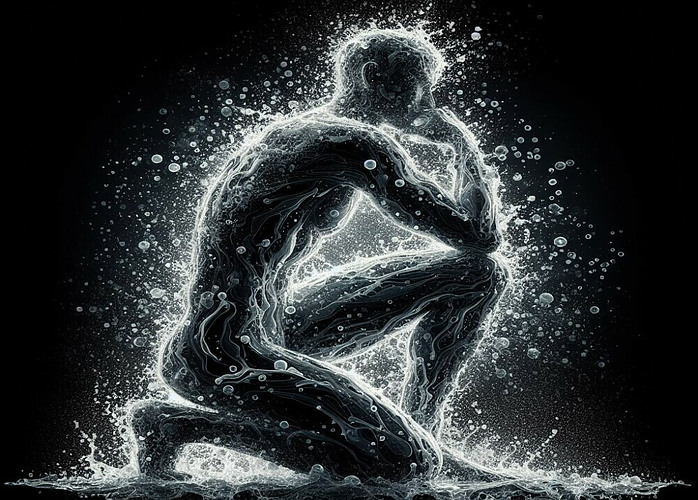 Hydration is more than just a health buzzword; it’s a crucial component of our well-being. Our bodies are composed of about 60% water, highlighting the significance of hydration in our daily lives. But what exactly is hydration, and why is it so essential?
Hydration is more than just a health buzzword; it’s a crucial component of our well-being. Our bodies are composed of about 60% water, highlighting the significance of hydration in our daily lives. But what exactly is hydration, and why is it so essential?
Defining Hydration and Its Role in Bodily Functions
Hydration is the process by which our bodies maintain an adequate amount of water to function correctly. Water is not just a thirst-quencher; it’s a critical element in nearly every bodily function. It helps in temperature regulation, joint lubrication, transporting nutrients and oxygen to cells, and removing waste products. Without proper hydration, our bodies cannot perform these essential tasks effectively.
Exploring the Science of How Water Supports Life
On a cellular level, water is vital for the biochemical reactions that sustain life. It’s a solvent for chemical reactions, aids in metabolism, and plays a key role in cellular respiration. Water’s unique properties, such as its ability to dissolve more substances than any other liquid, make it indispensable for living organisms.
The Health Benefits of Staying Adequately Hydrated
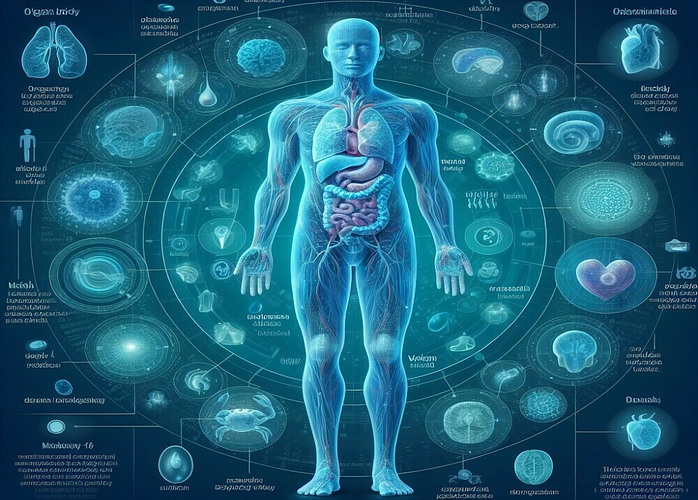 Staying well-hydrated has numerous health benefits. It can improve physical performance, enhance brain function, help in weight management, and boost skin health. Adequate hydration also reduces the risk of urinary tract infections and kidney stones, and can even improve mood and energy levels.
Staying well-hydrated has numerous health benefits. It can improve physical performance, enhance brain function, help in weight management, and boost skin health. Adequate hydration also reduces the risk of urinary tract infections and kidney stones, and can even improve mood and energy levels.
Consequences of Dehydration on Physical and Mental Performance
Dehydration can have immediate and long-term effects on both physical and mental performance. Physically, it leads to fatigue, muscle cramps, dizziness, and severe cases can lead to heatstroke. Mentally, dehydration can cause impaired concentration, reduced cognitive function, and mood swings. It’s crucial to recognize the early signs of dehydration – like thirst, dry mouth, and dark urine – to prevent these adverse effects.
Assessing Your Hydration Needs – How Much Water Do You Really Need?
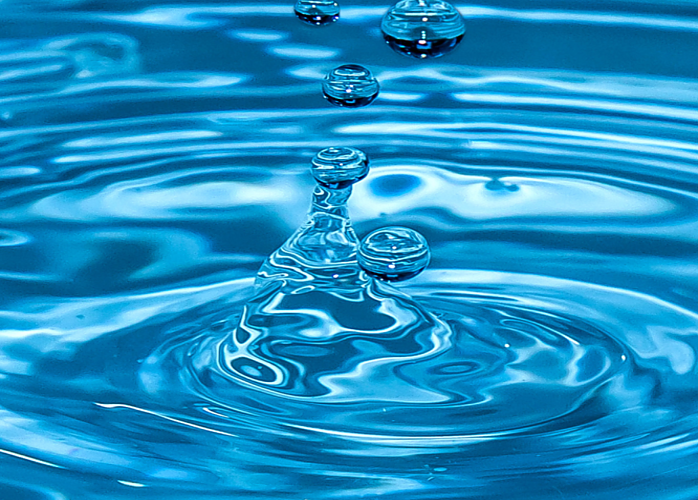 Hydration is not a one-size-fits-all equation. The amount of water you need depends on various factors, ranging from your lifestyle to your physical condition. Let’s explore how to assess your individual hydration needs and debunk some common myths along the way.
Hydration is not a one-size-fits-all equation. The amount of water you need depends on various factors, ranging from your lifestyle to your physical condition. Let’s explore how to assess your individual hydration needs and debunk some common myths along the way.
Debunking Myths About Daily Water Intake
A widely circulated myth is the need to drink eight glasses of water a day. While this can be a good benchmark, it’s not universally applicable. Your water needs can vary significantly based on factors like activity level, climate, and health status. It’s essential to look beyond generic guidelines and tailor your water intake to your specific needs.
Factors That Influence Individual Hydration Requirements

Several factors affect how much water you should drink:
- Physical Activity: The more active you are, the more water you need. Exercise increases sweat loss, requiring additional fluid intake to compensate.
- Environment: Hot or humid weather can make you sweat more, necessitating increased water consumption. High altitudes may also increase your hydration needs.
- Overall Health: Certain health conditions, such as fever, vomiting, or diarrhoea, can lead to additional fluid loss. Pregnant or breastfeeding women also have higher hydration requirements.
- Diet: Consumption of caffeine, alcohol, and certain foods can impact your hydration levels.
Hydration Indicators: Listening to Your Body’s Signals
Your body is adept at signalling its hydration needs. Thirst is an obvious indicator, but it’s not the only one. Other signs include the colour of your urine (clear or light yellow is ideal), frequency of urination, dry skin, fatigue, and dizziness. Paying attention to these signals is crucial for maintaining proper hydration.
Special Considerations for Athletes, Pregnant Women, and the Elderly
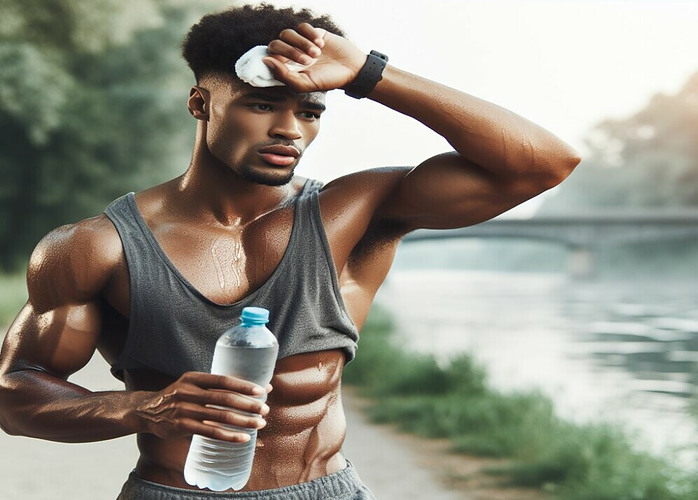
- Athletes: Due to increased sweating, athletes need to drink more water before, during, and after workouts. Sports drinks can be beneficial for long-duration exercises as they replenish electrolytes.
- Pregnant Women: Hydration affects not just the mother’s health but also the baby’s. Increased fluid requirements support the development of the fetus and the needs of the mother’s body.
- The Elderly: Aging can alter the body’s sense of thirst and its ability to conserve water, making it essential for older adults to consciously monitor their water intake.
Optimizing Hydration: Effective Strategies for Staying Hydrated
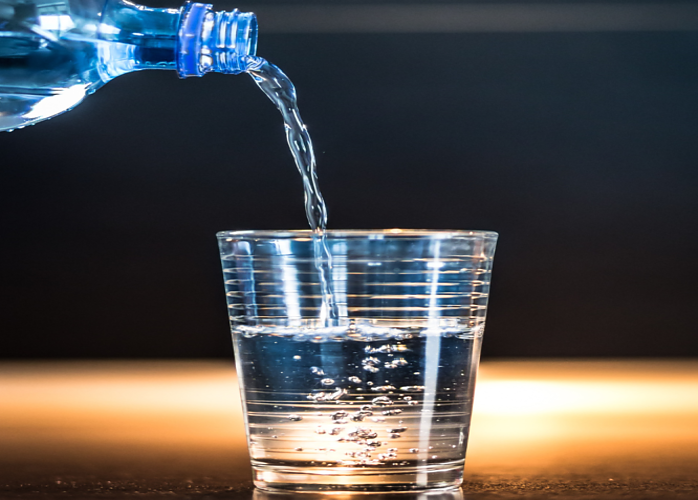 Staying adequately hydrated is vital for health and well-being, but it’s not always straightforward. How can you ensure that you’re getting enough water throughout the day? Here are some effective strategies to help you optimize your hydration.
Staying adequately hydrated is vital for health and well-being, but it’s not always straightforward. How can you ensure that you’re getting enough water throughout the day? Here are some effective strategies to help you optimize your hydration.
Tips for Incorporating More Water into Your Daily Routine
- Start Your Day with Water: Begin each morning with a glass of water to kickstart your hydration.
- Carry a Water Bottle: Having a water bottle with you at all times serves as a constant reminder to drink.
- Set Reminders: Use your phone or smartwatch to remind you to take a sip of water at regular intervals.
- Drink Before Every Meal: This not only helps with hydration but can also aid in portion control.
- Replace Other Drinks with Water: Cutting down on sugary drinks and replacing them with water is a healthier choice.
Understanding the Role of Electrolytes in Hydration
Electrolytes, such as sodium, potassium, and magnesium, play a crucial role in hydration. They help balance the amount of water in your body and ensure that your cells function correctly. Especially during intense exercise or high heat, replenishing electrolytes is as important as drinking water. Sports drinks, coconut water, or electrolyte-infused waters can be helpful in these situations.
Hydrating Foods: What to Eat to Boost Your Water Intake
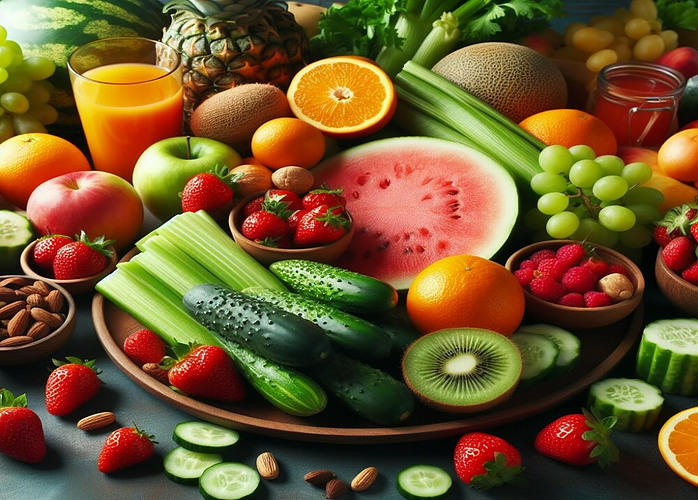 Certain foods can significantly contribute to your daily water intake. Fruits and vegetables like cucumbers, celery, watermelon, strawberries, and oranges are high in water content. Incorporating these into your diet can boost hydration and provide essential nutrients.
Certain foods can significantly contribute to your daily water intake. Fruits and vegetables like cucumbers, celery, watermelon, strawberries, and oranges are high in water content. Incorporating these into your diet can boost hydration and provide essential nutrients.
Devising a Personalized Hydration Plan for Optimal Health
Creating a personalized hydration plan involves understanding your body’s needs. Consider factors such as your activity level, environment, health status, and body size. Here are some steps to tailor your hydration strategy:
- Assess Your Daily Activities: More physically demanding days require more hydration.
- Monitor Your Body’s Signs: Pay attention to thirst cues, urine colour, and other signs of dehydration.
- Adjust for Environmental Factors: Increase water intake in hot climates or when spending time at high altitudes.
- Consult with Health Professionals: If you have specific health concerns or dietary requirements, it’s wise to seek advice from a healthcare provider.
Remember, staying hydrated is a daily commitment. Making small, consistent changes to your routine can significantly impact your overall hydration and health.
Hydration Myths and Facts: Dispelling Common Misconceptions
When it comes to staying hydrated, there’s no shortage of advice, but not all of it is accurate. Let’s debunk some common hydration myths and uncover the facts.
Addressing the 8-Glasses-a-Day Rule: Fact or Fiction?
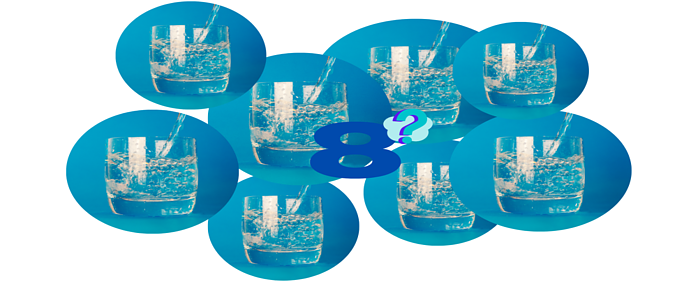
- Myth: You must drink eight glasses of water a day.
- Fact: The “8×8” rule is a simplified guideline, but individual hydration needs vary. Factors like body size, activity level, and climate affect how much water you should drink. It’s better to listen to your body and drink when you’re thirsty, and also consider the water you get from food and other beverages.
The Truth About Hydrating with Caffeinated and Alcoholic Beverages
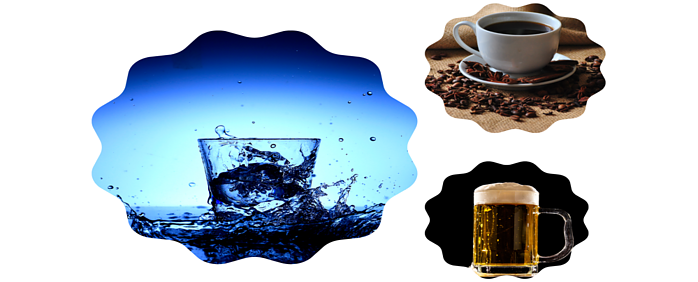
- Myth: Caffeinated and alcoholic beverages dehydrate you.
- Fact: While caffeine and alcohol can have diuretic effects, they don’t necessarily dehydrate you if consumed in moderation. For example, coffee and tea contribute to your daily water intake. However, it’s wise to balance these beverages with water, especially if you consume them in large quantities.
Can You Drink Too Much Water? Exploring the Risk of Overhydration
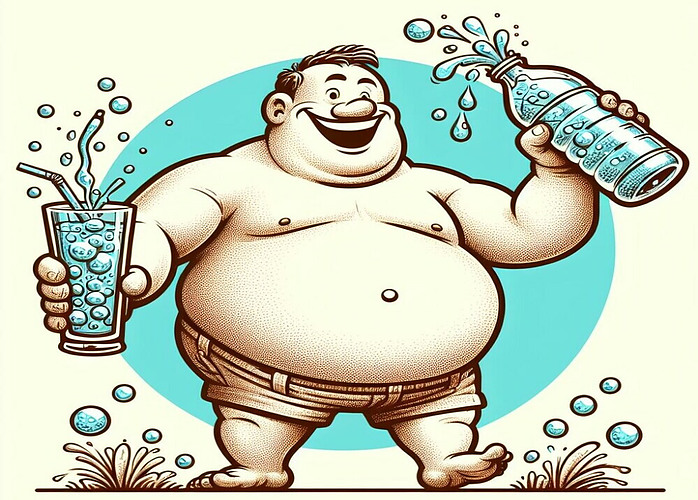
- Myth: There’s no such thing as too much water.
- Fact: Overhydration, or hyponatremia, can occur, though it’s rare. It happens when you drink so much water that it dilutes the sodium in your blood, leading to potentially life-threatening conditions. This is more common in endurance athletes who drink large amounts of water without adequate electrolyte replacement.
The Impact of Commercial Hydration Products

- Myth: You need commercial hydration products to stay properly hydrated.
- Fact: For most people, drinking water and maintaining a balanced diet is sufficient for hydration. Commercial hydration products, like sports drinks, can be beneficial during prolonged physical activity or in high heat, as they replace electrolytes lost through sweat. However, they often contain added sugars and calories, so they should be used judiciously.
Staying hydrated is crucial, but it’s important to approach it with a balanced perspective. Understanding the difference between myths and facts can help you make more informed decisions about your hydration needs and lead to better overall health.
In conclusion, water is not just a part of our diet; it’s a fundamental component of our health and well-being. Understanding the role of hydration can motivate us to prioritize our water intake, ensuring that our bodies function optimally. So, the next time you reach for a glass of water, remember, you’re doing more than quenching your thirst; you’re nourishing your body in the most fundamental way.
Elena
References
- Harvard T.H. Chan School of Public Health – The Importance of Hydration: Water regulates body temperature, supports cognition, mood, nutrient delivery, and organ function
- National Institutes of Health – Hydrating for Health: All cells need water, and dehydration can quickly lead to serious symptoms such as confusion or rapid heartbeat
- Healthline – 7 Science‑Based Health Benefits of Drinking Enough Water: Even mild dehydration (1–3%) can impair energy, mood, memory, brain performance, and physical endurance
Disclaimer
This article is for informational purposes only and is not a substitute for professional medical advice. Always consult with a healthcare professional regarding your individual hydration and health needs, especially if you have underlying medical conditions.
About the Author
Elena is an educator with more than 20 years of experience working with young people. She writes about health, wellness, and lifestyle, combining professional knowledge with a warm, practical approach to inspire balance and resilience in everyday life.


As someone who often struggles with dehydration, I found your blog post truly enlightening. Honestly, I’ve never been good at regularly drinking water throughout the day. Your article not only highlighted the vital importance of staying hydrated but also provided practical advice that I can easily incorporate into my daily routine. The idea of setting an alarm as a reminder to drink water is something I plan to implement right away. It’s a simple yet effective strategy that I hadn’t considered before. Your post has inspired me to prioritize my hydration habits for better health. Thank you for sharing such valuable insights!
I’m glad you found something useful in the post about hydration. My advice to you is to take immediate action and start hydrating as soon as possible! Remember: you will stay youthful for a long time, your face will look more radiant, your body will appear more beautiful, and you will enjoy better health and vitality. Isn’t that great?
Good luck!